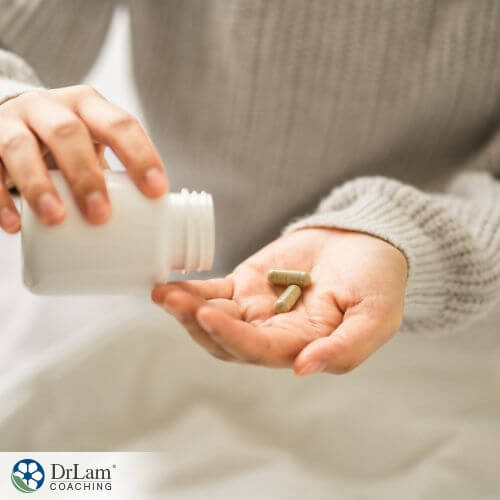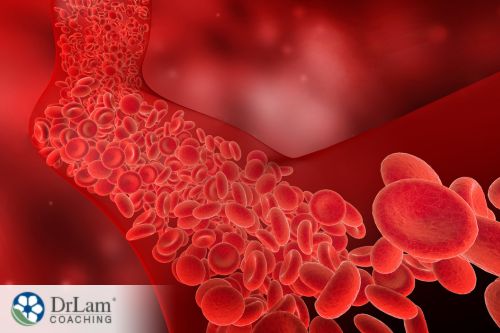 Generally speaking, heart disease can be linked to several different causes. Several of these issues are linked to the blood vessels, including arrhythmias and coronary artery disease. However, endothelial dysfunction may also play a major role in the development of heart conditions. Endothelial dysfunction may increase your risk for heart disease or cause the condition to progress. However, Arterosil is a supplement that may offer an alternative way of managing vascular health and keeping your heart healthy.
Generally speaking, heart disease can be linked to several different causes. Several of these issues are linked to the blood vessels, including arrhythmias and coronary artery disease. However, endothelial dysfunction may also play a major role in the development of heart conditions. Endothelial dysfunction may increase your risk for heart disease or cause the condition to progress. However, Arterosil is a supplement that may offer an alternative way of managing vascular health and keeping your heart healthy.
Arterosil is a U.S.-patented dietary supplement, the only one of its kind that targets vulnerable plaque.
The endothelial glycocalyx is a protective barrier, a micro-thin gel lining that makes up your blood vessels. It’s a delicate structure that protects your artery wall, maintaining the health of your arteries and heart. Functioning to protect and control the endothelium or vascular system in its entirety, the glycocalyx is essentially the foundation of your vascular health, which is the foundation of overall health.
Arterosil's patented formulation contains the endothelial glycocalyx-supporting compound rhamnan sulfate, which is derived from a rare green seaweed--Monostroma nitidum. Additionally, the supplement contains an anti-oxidant-rich fruit, vegetable, and green tea extract blend. This blend provides vascular support and aids the effects of rhamnan sulfate by minimizing oxidative stress.
When your vascular system is in tip-top shape and healthy, it supports all the systems and organs in your body. Arterosil uniquely provides endothelial glycocalyx support. Its benefits include:
Arterosil's unique blend of natural ingredients has been scientifically shown to boost blood flow, minimize oxidative stress, and reduce the risk of cardiovascular diseases. The main bioactive ingredient, rhamnan sulfate, a polysaccharide (kind of carbohydrate) extracted from a unique green seaweed, is effective as a blood-thinning agent, which makes it advantageous in reducing the risk of blood clots and enhancing circulation.
According to a study in the journal Biomaterials, rhamnan sulfate has both anti-oxidant and anti-inflammatory properties and is beneficial in reducing inflammation, binding growth factors and NF-κB (a central factor in inflammation), improving endothelial barrier function, and reducing atherosclerotic plaque formation. Furthermore, the study’s findings suggest that because of its antioxidant properties, rhamnan sulfate can help to protect your heart and blood vessels from free radical-inducing damage.
In another study published in the journal Industrial & Engineering Chemistry Research, arterosil reverses cardiovascular disease by supporting plaque regression. According to the study, MRIs of men and women with major carotid artery plaque who took Arterosil for three months experienced a plaque regression of 46.8% in men and 64% in women on average.
 The term glycocalyx is derived from the Greek words for “sweet” and “husk” because of its primary building blocks, polysaccharides, which are long chains of sugar molecules. Glycocalyx allows blood to flow without affecting the inner wall of the blood vessels. Your vascular system delivers oxygen, nutrients, and other molecules to every single organ and system in your body. As such, you must take care of your vascular health to support optimal health overall.
The term glycocalyx is derived from the Greek words for “sweet” and “husk” because of its primary building blocks, polysaccharides, which are long chains of sugar molecules. Glycocalyx allows blood to flow without affecting the inner wall of the blood vessels. Your vascular system delivers oxygen, nutrients, and other molecules to every single organ and system in your body. As such, you must take care of your vascular health to support optimal health overall.
The glycocalyx plays an essential role in vascular health, serving as a barrier between the blood and the blood vessels. It also releases several signaling molecules, including nitric oxide (NO), which acts to dilate or relax the arteries, and also regulates your blood pressure and blood flow.
Furthermore, the endothelium plays a role in controlling blood clotting, inflammation, oxidative stress, and the growth of new blood vessels. According to a study in the Journal of Clinical Medicine, "endothelial dysfunction involved in cardiovascular disease pathogenesis is a trigger, or consequence, of oxidative stress and inflammation." Research indicates that the glycocalyx is the first line of defense against endothelial and arterial damage.
Endothelial dysfunction refers to a reduction in the production or availability of nitric oxide and an imbalance in the relaxing and contracting factors that the endothelium releases. An unhealthy endothelial cell tends to reflect an artery that has some degree of impairment. This occurs when the glycocalyx is not only thin, but ragged, uneven, and bare in spots. This change is known as glycocalyx dysfunction, and it negatively impacts the vascular system.
Glycocalyx dysfunction enables cholesterol, fats, and other fat-promoting substances to permeate the endothelium and enter the arteries. The result is a rise in blood pressure, plaque buildup takes over, and atherosclerosis develops. Furthermore, a decline in antioxidant defenses occurs, and inflammatory and clotting factors also soar.
Factors such as smoking, high blood pressure, obesity, excessive glucose in the blood, and aging take a toll on the glycocalyx, eroding and destroying the delicate structures.
Some common causes of glycocalyx dysfunction may include:
The primary factors that contribute to the breakdown of the endothelial glycocalyx include:
Considering these factors, Arterosil supplements, like the Arterosil HP®, could benefit people seeking support for vascular health or boosting healthy aging and those with hypertension. It could also help people with a history of coronary artery disease, heart attack, stroke, peripheral artery disease, erectile dysfunction, neuropathy, or clogged arteries. Additionally, this supplement supports healthy artery walls when going through the normal changes that result from aging, genetics, and lifestyle factors.
 According to research, high cortisol levels may be a source of glycocalyx dysfunction. Commonly, higher cortisol levels are caused by chronic stress. Cortisol is produced through the actions of NeuroEndoMetabolic (NEM) Stress Response. If you go for a long period experiencing stress, cortisol production will increase.
According to research, high cortisol levels may be a source of glycocalyx dysfunction. Commonly, higher cortisol levels are caused by chronic stress. Cortisol is produced through the actions of NeuroEndoMetabolic (NEM) Stress Response. If you go for a long period experiencing stress, cortisol production will increase.
This can lead to Adrenal Fatigue Syndrome (AFS). With this condition, the non-Addison's form of adrenal dysfunction, your body's stress response cannot keep up with life's chronic stressors, and you will have high cortisol levels as your body tries to respond to the chronic stress. High cortisol levels promote high blood sugar levels, high blood pressure levels, and impact vascular tone as well as blood cholesterol levels. These issues are all connected to an increased risk of plaque buildup in your arteries, and by extension, endothelial dysfunction.
Your body's Cardionomic Circuit is responsible for your heart health and it also helps deal with stress. The cardionomic circuit contains the adrenal glands, cardiovascular system, and autonomic nervous system. This circuit forms part of your body’s NeuroEndoMetabolic (NEM) Stress Response, which tackles stress that your body encounters. Glycocalyx dysfunction can throw your Cardionomic Circuit of balance, disrupting its normal function.
Getting to the root cause of your stress and lowering cortisol levels in the body can help to restore its health and well-being. In that vein, Arterosil is a good option to consider if you want to boost your vascular health. Be sure to consult with your doctor before you take any new supplements, however, especially if you have AFS.
It can help to know if you have plaque in the carotid arteries or the heart. You can do this with the help of certain labs or diagnostics including:
There are no reports of situations that suggest that Arterosil is harmful to people who have used it or that it could potentially cause harm. In the case of safety studies of Arterosil, no records reveal any problems. Also, to date, there is no evidence to point to any serious side effects related to the supplement.
However, persons who have been prescribed medications for hypertension may find that Arterosil may minimize the need for those medications or you may need to stop taking them altogether. In this instance, it’s recommended that you monitor your blood pressure closely to identify how Arterosil affects you. Healthcare professionals should exercise clinical judgment when it comes to children and pregnant women and Arterosil use.
When it comes to your heart health, it is essential to minimize your risk of developing heart disease. You may need to make certain lifestyle changes, medication changes, or add certain supplements to your diet. Arterosil is a potent supplement that promotes and supports heart health. It can help to reduce plaque buildup, support endothelial function, and maintain your artery wall’s protective barrier.
If you would like to start taking this supplement, first speak to your healthcare provider so that your physician can guide you and you can make an informed decision about your health.
For further inquiries about proper supplementation, explore our Adrenal Fatigue Nutritional Recovery Program, which includes proprietary supplements, an exhaustive guidebook, educational content, meal and exercise plans, sleep improvement advice, unlimited online learning, and personalized support to enhance energy and adrenal health systematically, please don't hesitate to reach out to us at +1 (626) 571-1234.
Your journey towards optimal heart health begins with informed choices and personalized guidance.
Banerjee, Selina, et al. Regeneration and Assessment of the Endothelial Glycocalyx To Address Cardiovascular Disease. Industrial & Engineering Chemistry Research, vol. 60, no. 48, 2021, pp. 17328-17347.doi:10.1021/acs.iecr.1c03074.
Patil, Nikita P., et al. "Rhamnan Sulfate Reduces Atherosclerotic Plaque Formation and Vascular Inflammation." Biomaterials, vol. 291, 2022, p. 121865, https://doi.org/10.1016/j.biomaterials.2022.121865.
Scioli, Maria Giovanna, et al. “Oxidative Stress and New Pathogenetic Mechanisms in Endothelial Dysfunction: Potential Diagnostic Biomarkers and Therapeutic Targets.” Journal of Clinical Medicine vol. 9,6 1995. 25 Jun. 2020, doi:10.3390/jcm9061995
Arterosil is a U.S.-patented dietary supplement, the only one of its kind that targets vulnerable plaque. Top benefits include maintaining the artery wall’s protective barrier, supporting normal endothelial function and integrity, improving blood flow, and promoting normal nitric oxide production.
